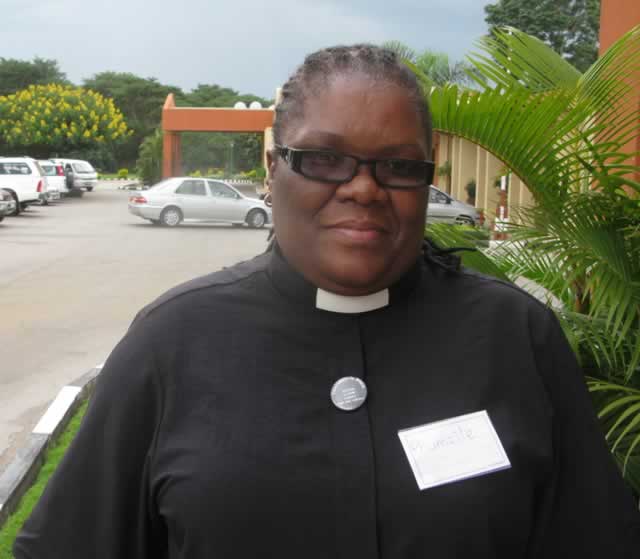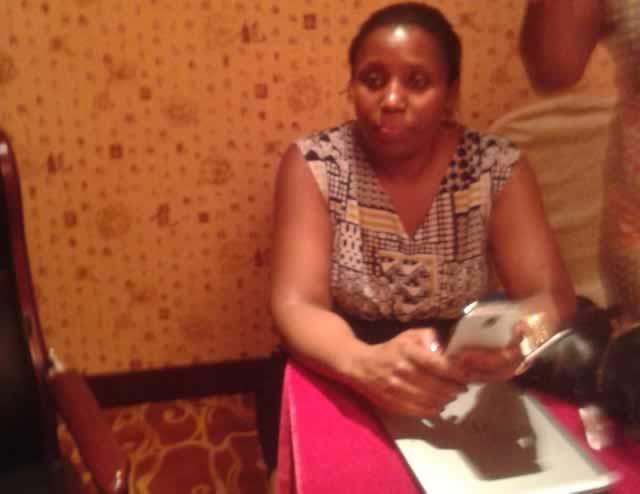Prepare children for death

Catherine Murombedzi HIV Walk
In most cases, an African man does not die from natural causes, at least in the eyes of his family and community if not his doctors and the pathologists. After the death of a breadwinner who happens to be the man of the house, elders gather and discuss ways on finding the cause of death.
A woman can die of natural causes and it is acceptable, such is the way we are made to believe.
Even before the deceased is buried murmurs are heard that could the widow not be responsible for the man’s death? In cases where the man had investments, inheritance is cited as the cause why one was killed.
Rarely do people mourn the dead in peace and accept that death is part of the life cycle.
In the Bible, Job 14 vs 1-5 says: “A man that is born of a woman is of few days, and full of trouble. He cometh forth like a flower, and is cut down, he fleeth also as a shadow, and continueth not. And dost thou open thine eyes upon such one, and bringest me into judgment with thee?
“Who can bring a clean thing out of an unclean? Not one. Seeing his days are determined, the number of his months are with thee, thou hast appointed his bounds that he cannot pass.”
This shows that there is a time that one can’t pass when the appointed time comes. Man can question but the answers will be vague.
Do we prepare our children for the inevitable in life? Do we talk or plan for the future when we are no longer around and what happens to our spouses? Do we see our children one day being orphans because death is a law or we think we will be there till we accomplish all we have planned?
Sad enough an African family may not talk of death of a spouse and what would happen in that event it is taboo. If there were to be any third person around they would speculate that so and so is planning on eliminating his/her spouse. How can one plan of life without the other? Wills are written but are rarely discussed. It could be for the better or worse were they to be discussed. To talk or not to talk that is the question.
Anyone with a chronic illness will be in a difficult position because he or she does not know how to disclose to his/her children. One can be counselled and be in a position to tell the children that he or she is terminally ill.
Some chronic illnesses are now manageable with medication but children have a right to know. In many instances they hear of the cause of death at a funeral. This is quite bad as relatives whisper: “He died of Aids. The wife is dying anytime soon. Be prepared to come back in a very short space of time.”
This will be quite disturbing to hear the cause of death of their parent at the funeral wake.
Mrs Huni of Kakora in Chiweshe is one woman who turned down the offer to be given a “husband” disclosing that she was living positively and so was the deceased. Positive status not withstanding she was not prepared to be someone’s wife again or even be a co-wife since all the prospective husbands-to-be had wives of their own.
Mrs Chiedzo Huni brought me to reality when she asked if I had planned on the future of my children in the event that I or my spouse were gone.
I had not, despite knowing that death was inevitable.
She frankly talked of the different life that she had to get used to after the death of her husband. They had lived in the city for all their working lives and had luckily built a homestead in the rural areas as a retirement home.
“I have lived in the city since I got married 30 years ago. In the last decade when my husband’s health was failing, he suggested we build a retirement home and we did. We built this lovely four-bedroomed house in Kakora and constructed fowl runs. I have realised that as much as we do not want to talk of death it is inevitable. I am, however, comforted by the fact that we had built a retirement home,” said Mrs Huni.
Mrs Huni has since relocated to her rural home and she is now renting out their city home.
“I have moved out to the rural area but at first I failed to adjust. We used to come for weekends only so staying longer proved difficult in the first months that I moved with my last daughter who is now a student at Bindura University of Science Education. She lives in Bindura and comes during the vacation,” she said.
Mrs Huni said she is lucky that she only had one dependant with the rest having settled in their own homes.
“I fear to imagine if I had minor children. The income from the city house is only enough to pay for varsity tuition. The poultry project though doing well is stifled by lack of market. I am able to keep 500 to 700 chickens at a time but I do not. At most I keep just 100 as it is difficult to dispose of the chickens here in Chiweshe. The teachers from nearby schools are my biggest customers so the market is depressed,” she said.
Mrs Huni said in the last days that her husband lived they saw it necessary that they call all the children and inform them that their father was terminally ill.
“We called all the children and told them that their father was in the last stage of prostate cancer. We also revealed to the children that we had been living with HIV for more than a decade. They were devastated but it helped them cope with their father’s death,” she said.
Mrs Huni said after laying her husband to rest, clan elders requested that they visit n’angas or prophets, whatever was suitable to her but she declined.
“As usual the elders wanted to know the cause of death. Despite my husband having been in and out of hospitals and having had two operations, they still wanted a ‘further’ cause of death inquiry. He had had chemotherapy and for over a year had gone for radiotherapy sessions at Parirenyatwa Hospital so I was surprised that they would still want to consult the spirit world on the cause of death,” she said.
“Despite the fact that I have a son-in-law and a daughter-in-law, men drooled showing intentions to have me for a new wife. I wonder what it is that they would have expected from someone aged 55. I then openly told the gathering at the distribution of clothes and collections that I lived positively for the last decade and so did my late husband. I also informed them that my husband, however, died from prostate cancer. That silenced all the elders who wanted us to consult on the cause of death,” said Mrs Huni.
Mrs Huni said it was important that families planned on life when the other partner had departed and she is glad that they did.
For many people it will be slightly different in that they have minor children. Telling minor children of death is difficult but necessary especially when faced with a terminal illness. If children are told of possible death, they may also ask if they too will die and they are scared. A child may ask “Am I going to die?” Tell them that they will. If a child asks whether a parent is going to die, they should be told that all people will die eventually, but that their parent will not die immediately but when the time comes.
It may sound very sadistic, but it’s real, we have to prepare our children for life when we have departed.
Also of paramount importance is to know if your children are minors who will be their guardian and if they are able to live in the same set-up or be split up.
It’s not only the chronically ill who have to prepare for this, any mishap may result in one dying anytime, it’s not a planned event. It might sound taboo in our culture to discuss death but it’s wise to prepare children for life after a parent’s death. Remember caution is a big brother of wisdom. With the advent of life taking illnesses like HIV/Aids and cancer one has to take a radical approach to life.
Feedback: [email protected]






Comments